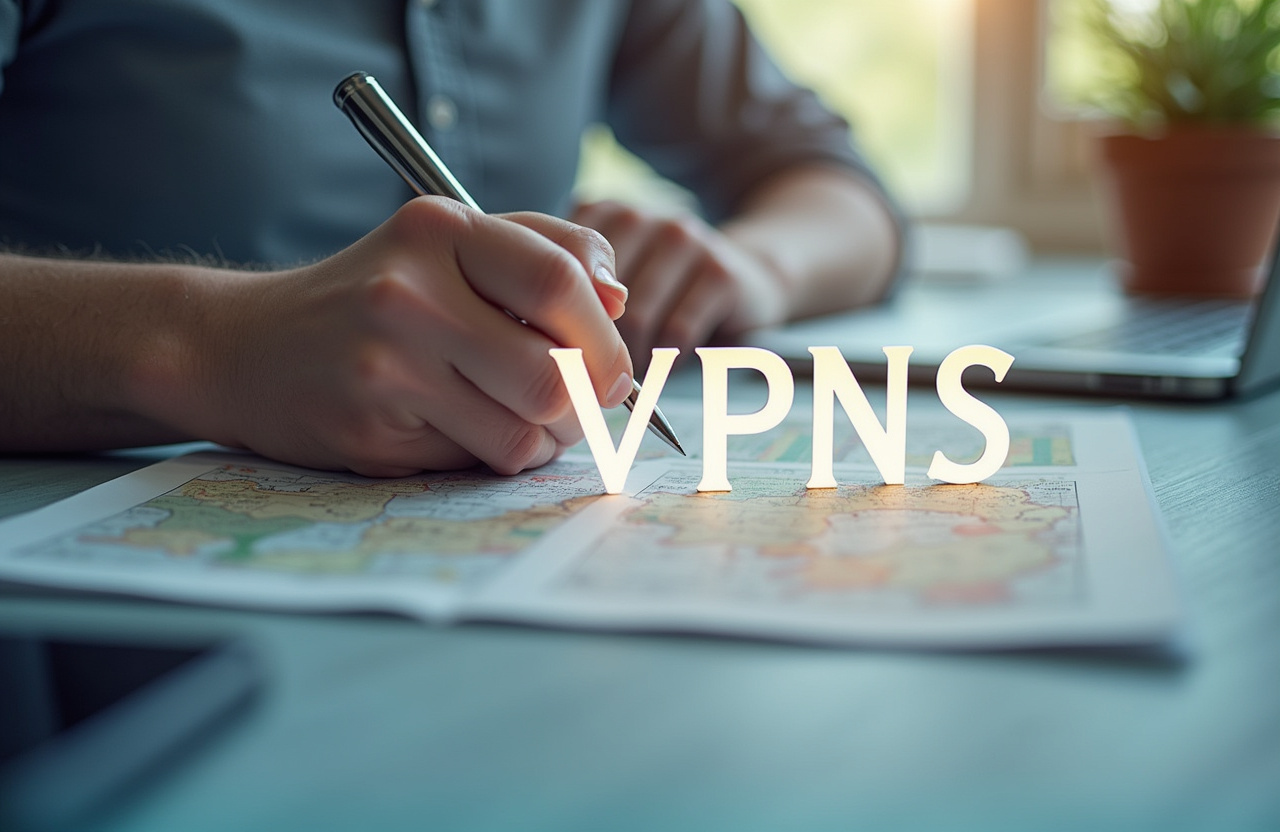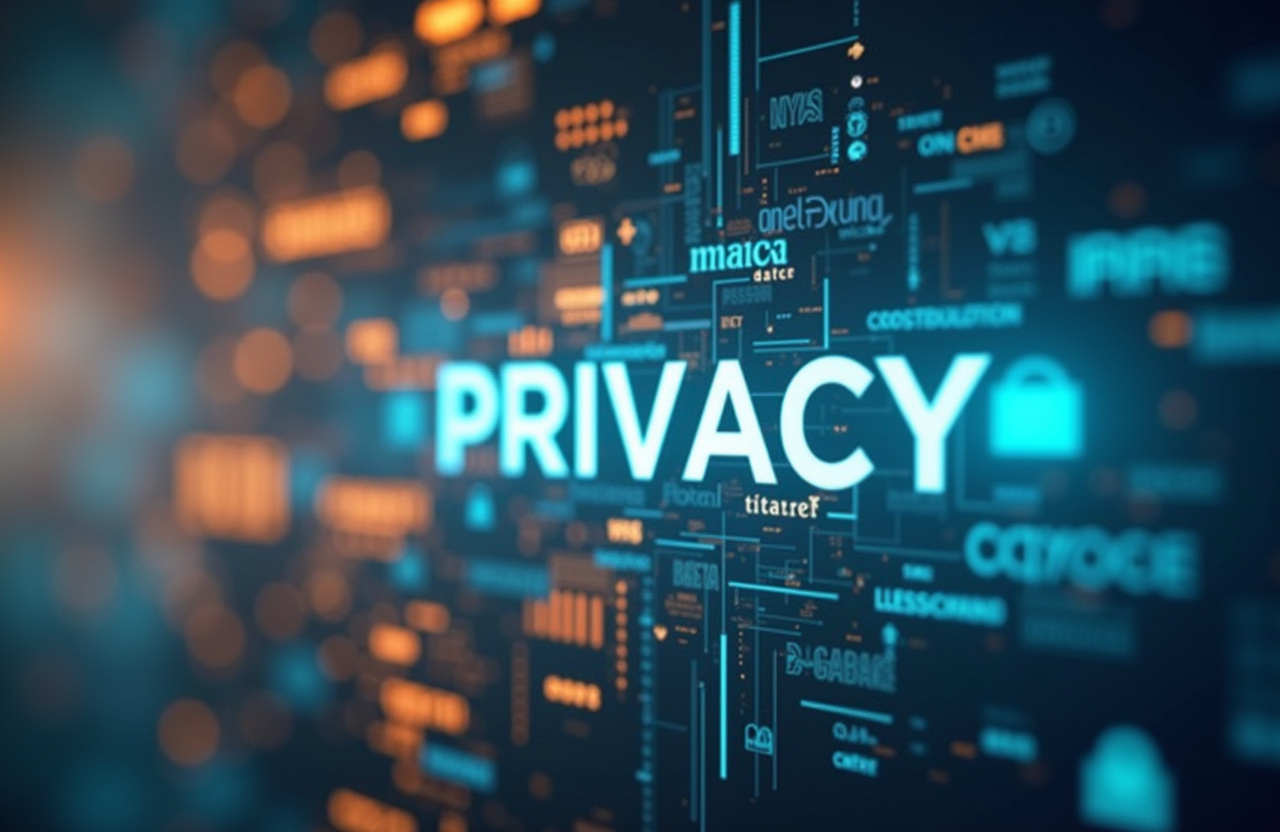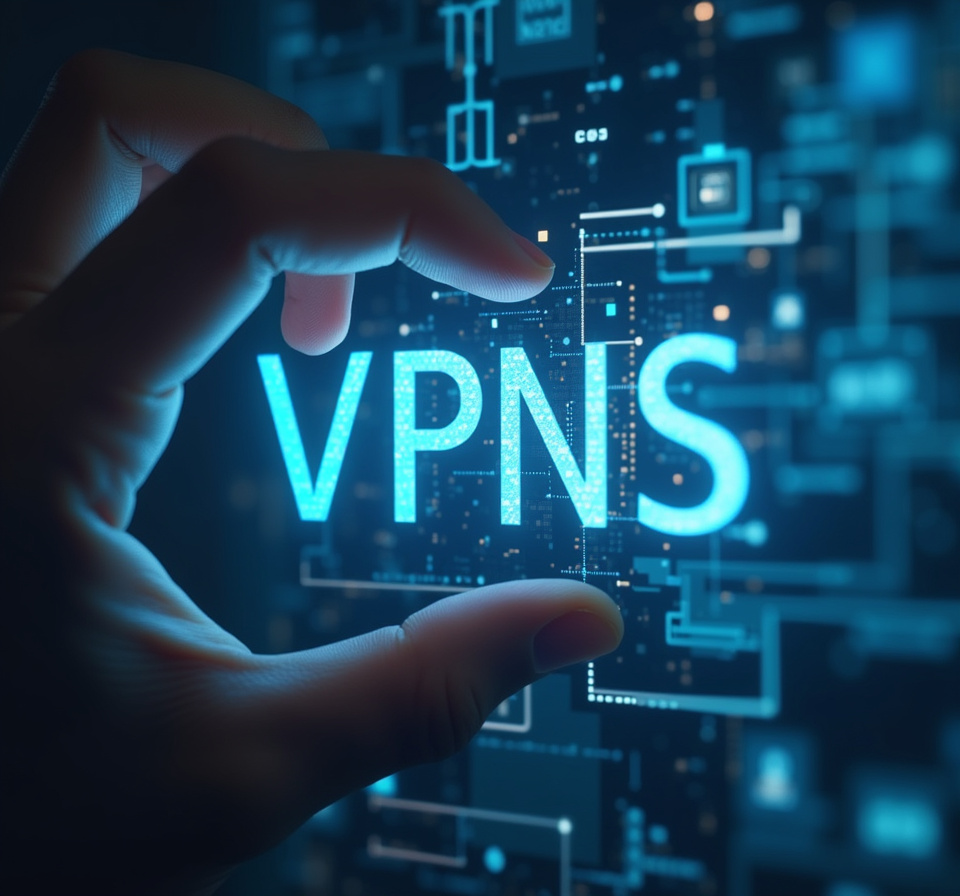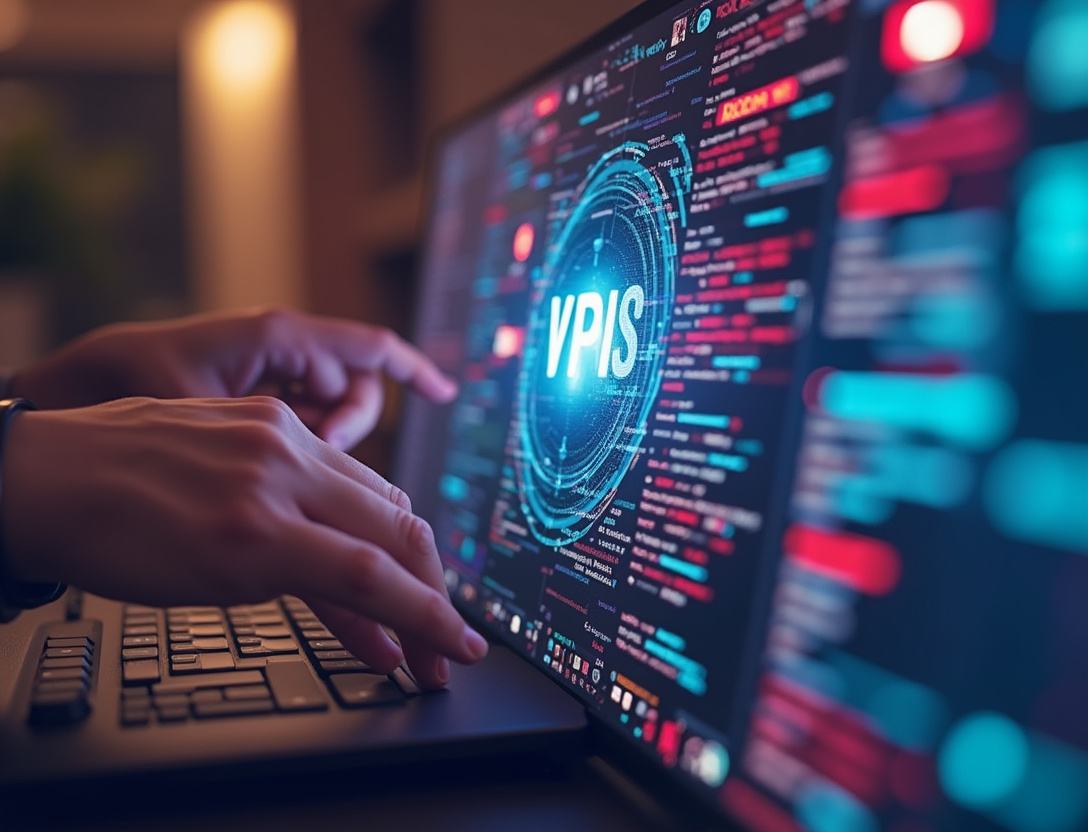VPNs for Genealogists: Protecting Ancestral Research

Table of Contents
The Digital Genealogy Dilemma: Balancing Discovery with Data Security
Genealogy, the captivating pursuit of tracing family lineages and uncovering ancestral stories, has been profoundly transformed by the advent of the internet. Long gone are the days when researchers were solely reliant on painstaking manual searches through physical archives, libraries, and historical societies. Today, a vast and ever-expanding universe of online resources – digitized records, collaborative genealogy platforms, and interactive family tree builders – beckons genealogists to delve deeper and connect with their past in unprecedented ways.
However, this digital revolution also presents significant challenges, particularly in the realm of data privacy and security. Genealogists, by their very nature, collect and aggregate a wealth of sensitive personal information, not only about themselves and their immediate families but also about generations of ancestors reaching back centuries. This rich tapestry of names, dates, locations, occupations, and familial relationships constitutes a valuable dataset that, if exposed, could be exploited for malicious purposes.
Protecting this treasure trove of ancestral information is paramount, and a Virtual Private Network (VPN) has emerged as an indispensable tool for the discerning modern genealogist. A VPN acts as a secure and encrypted tunnel, channeling your internet traffic through a private server, effectively shielding your online activity from the prying eyes of hackers, eavesdroppers, and even your own internet service provider (ISP). Consider it a digital cloak of invisibility, masking your true IP address – a unique identifier that reveals your location and online behavior – and replacing it with one from the VPN server's location.
This simple yet powerful act of IP masking has profound implications for genealogists seeking to protect their `data confidentiality`. When engaging in online genealogical research, you are constantly interacting with various websites, databases, and online platforms, each of which may be collecting and storing your personal data. A VPN ensures that this data is transmitted securely, encrypted against interception by malicious actors.
This is particularly crucial when accessing sensitive records, such as birth certificates, marriage licenses, census data, and military records, which often contain highly personal information that could be misused if compromised. Furthermore, a VPN protects your login credentials, passwords, and other sensitive information from being intercepted while you are accessing genealogical websites and platforms. By encrypting the data, a VPN thwarts attempts by hackers to steal your login information, preventing unauthorized access to your accounts and protecting your personal data from being compromised.
A VPN does not only protect genealogists from external threats; it also provides a valuable layer of privacy against the data collection practices of ISPs and other third parties. ISPs routinely monitor and log your online activity, including the websites you visit, the searches you conduct, and the content you consume. This data can then be used for targeted advertising, profiling, and even sold to third-party data brokers.
By using a VPN, you can prevent your ISP from tracking your online activity and protect your privacy from unwanted intrusion. In light of increasing data breaches and the escalating sophistication of cyber threats, a VPN is no longer a luxury for genealogists, but an essential safeguard. By encrypting your internet connection, masking your IP address, and protecting your personal data, a VPN empowers you to pursue your passion for ancestral research with enhanced security and peace of mind.
Selecting the appropriate `genealogy VPN` is an investment in both your personal digital safety and the integrity of your family's history. Beyond security, a VPN also allows genealogists to bypass geographical restrictions, opening doors to resources not available in their region. Many vital genealogical materials, including digital archives and unique databases, are locked behind territorial barriers owing to copyright regulations, licensing agreements, or governmental policies.
With a VPN, researchers can connect to servers located in countries where these resources are accessible, effectively circumventing these restrictions and expanding their access to information crucial to their research. This is invaluable for those tracing ancestry to specific regions, offering access to local records and primary sources otherwise unattainable.
The rise of online genealogy has fostered an unprecedented era of `information sharing` and collaboration among researchers worldwide. Genealogy forums, social media groups dedicated to specific surnames or ancestral regions, and collaborative family tree platforms have become virtual meeting places where enthusiasts can connect, exchange discoveries, and overcome challenging research obstacles. This enhanced connectivity undoubtedly accelerates the pace of genealogical research, allowing individuals to tap into a collective knowledge base and benefit from the insights and expertise of others.
However, this collaborative spirit also introduces new privacy considerations that genealogists must be aware of. When participating in online discussions, sharing family tree information, or contributing to collaborative projects, it's crucial to be mindful of the potential risks involved and take steps to protect your personal data and the privacy of your relatives, both living and deceased. Sharing sensitive information, such as birthdates, addresses, maiden names, and family relationships, on public forums or unsecured platforms can expose you and your family to various threats, including identity theft, phishing scams, and unwanted solicitations.
A `VPN for researchers` significantly reduces these risks by encrypting your internet connection, masking your IP address, and preventing eavesdroppers from intercepting your communications. Think of it as a confidential channel for your online interactions, ensuring that your shared information remains protected from unauthorized access. Moreover, a VPN enables you to exert greater control over your online identity and maintain a degree of anonymity when participating in genealogical discussions.
By connecting to a server in a different location, you can effectively obscure your true location and prevent your personal information from being directly linked to your online posts and comments. This is particularly valuable when discussing sensitive or controversial topics related to your family history, or when sharing information about living individuals who may prefer to remain anonymous. In addition to safeguarding your own privacy, a VPN can also help you uphold the privacy of others.
When sharing information about living relatives, it's essential to obtain their explicit consent and respect their wishes regarding the disclosure of their personal data. A VPN can assist you in maintaining anonymity and avoiding the unintentional disclosure of information that could compromise their privacy or expose them to potential harm. Furthermore, when working with historical records, it's important to be mindful of the privacy rights of individuals who may still be living.
Many historical documents contain personal information about individuals who are now deceased, but some of these individuals may have living relatives who have a legitimate interest in protecting their privacy. A VPN can help you access and analyze these documents anonymously, without revealing your identity or potentially infringing upon the privacy rights of others. The goal is to strike a balance between sharing your research findings and safeguarding the privacy those involved.
Online genealogical databases and family tree platforms offer incredible opportunities for collaboration but also present challenges. These platforms often collect user data, which, if breached, could expose sensitive ancestral information. Reviewing carefully platform's privacy policies is key, using strong passwords, and considering a VPN to encrypt connections are among the precautions to consider.
Responsibility when sharing information and prioritizing safety for genealogy research, even at the expense of immediate progress, shows respect and upholds the legacy being explored.
The relentless evolution of cyber threats presents an ongoing and escalating challenge for genealogists navigating the digital landscape. Cybercriminals are constantly devising sophisticated methods to steal personal information, exploit vulnerabilities in online systems, and orchestrate increasingly elaborate scams. Data breaches, ransomware attacks, and phishing campaigns are becoming commonplace occurrences, and the potential consequences for genealogists, who collect and store vast amounts of sensitive family data, can be devastating.
A single data breach could expose personal information about multiple generations of your family, leading to identity theft, financial fraud, and reputational damage. Protecting against these evolving threats requires a comprehensive and multi-layered approach to cybersecurity, and a `genealogy VPN` constitutes a crucial component of that defensive strategy. A VPN provides a fundamental layer of protection by encrypting your internet traffic, effectively scrambling your data as it travels across the internet.
This encryption makes it significantly more difficult for hackers to intercept your data and steal sensitive information, such as login credentials, financial details, and personal correspondence. The masking of your IP address offered by a VPN further complicates the efforts of cybercriminals to track your online activity and target you with personalized attacks. By routing your internet traffic through a remote server, a VPN effectively conceals your true location and makes it more challenging for hackers to identify and exploit your vulnerabilities.
However, it's important to recognize that a VPN is not a silver bullet that can single-handedly eliminate all cybersecurity risks. A VPN should be viewed as one element of a comprehensive security strategy that also includes strong passwords, two-factor authentication, up-to-date antivirus software, and a healthy dose of online skepticism. Employing strong, unique passwords for all your online accounts is essential to prevent unauthorized access.
Avoid using easily guessable passwords, such as your birthdate, family names, or common words. Instead, opt for complex passwords that combine uppercase and lowercase letters, numbers, and symbols. Whenever possible, enable two-factor authentication (2FA) on your online accounts.
2FA adds an extra layer of security by requiring you to enter a unique code sent to your phone or email address in addition to your password. This makes it significantly more difficult for hackers to access your accounts, even if they manage to obtain your password. Installing and regularly updating antivirus software on your computer and mobile devices is crucial to protect against malware, viruses, and other malicious software that can steal your personal information.
Antivirus software scans your system for known threats and helps to prevent infections. Maintain a healthy dose of online skepticism and be cautious about clicking on suspicious links, opening unsolicited emails, or downloading files from untrusted sources. Phishing scams are designed to trick you into revealing your personal information by disguising themselves as legitimate emails or websites.
Always verify the sender of an email and carefully examine the URL of a website before entering any personal information. Recognizing common phishing attempts and knowing how to respond is key to not becoming a victim. By combining a VPN with these other security measures, genealogists can significantly reduce their risk of falling victim to cybercrime and protect their valuable family data from unauthorized access.
Remember, protecting the `ancestral research security` is not a one-time task but an ongoing process that requires vigilance, awareness, and a proactive approach. Staying informed about the latest cyber threats and taking steps to mitigate your risks is essential for safeguarding your family history and ensuring your personal information remains secure. A digital safe approach protects what is researched and how it's shared..
Effective `data confidentiality` extends beyond simply encrypting your internet connection. It encompasses a holistic approach to managing and protecting your genealogical data throughout its entire lifecycle, from initial collection to long-term storage and archival. This involves implementing robust data management practices, adopting secure storage solutions, and being mindful of the privacy implications of your research activities.
As a genealogist, you are constantly collecting and compiling vast amounts of personal data from diverse sources, including online databases, historical records, family interviews, and personal correspondence. It's crucial to establish a systematic approach to organizing and managing this data to ensure its accuracy, integrity, and confidentiality. Develop a consistent naming convention for your files and folders to make it easy to locate and retrieve information when you need it.
Use descriptive names that accurately reflect the content of each file or folder. For example, instead of using generic names like "Document1.pdf" or "FamilyTree.ged," use more descriptive names like "BirthCertificate_JohnSmith_1880.pdf" or "AncestralChart_SmithFamily_1700-1900.ged." Implement a secure storage solution for your genealogical data. Avoid storing sensitive information on unsecured devices or public cloud storage services that may be vulnerable to data breaches.
Instead, opt for encrypted external hard drives, password-protected cloud storage accounts, or dedicated genealogy software that offers built-in security features. Regularly back up your genealogical data to protect against data loss due to hardware failure, theft, or accidental deletion. Store your backups in a secure location that is separate from your primary storage device.
Consider using a cloud backup service that encrypts your data before it is uploaded to the cloud. When sharing genealogical information with others, be mindful of the privacy implications and take steps to protect the confidentiality of your data. Avoid sharing sensitive information on unsecured email accounts or public forums.
Instead, use encrypted email services or secure file-sharing platforms to transmit sensitive data. Before sharing your family tree with others, review your privacy settings and control who can view your information. Consider using a pseudonym or alias to protect your identity when participating in online genealogy communities.
Restrict access to sensitive information to only those individuals who have a legitimate need to know. When collaborating with other genealogists, establish clear agreements regarding data sharing and confidentiality. Discuss how you will protect the privacy of your data and what steps you will take to address any potential security breaches.
Regularly review and update your data management practices to ensure they remain effective and compliant with evolving privacy regulations. Stay informed about the latest data security threats and vulnerabilities and take steps to mitigate your risks. Consider attending genealogy conferences or workshops that offer training on data privacy and security best practices.
Protecting your genealogical data is an ongoing process that requires vigilance and attention to detail. By implementing robust data management practices, adopting secure storage solutions, and being mindful of the privacy implications of your research activities, you can safeguard your family history and ensure the confidentiality of your personal information. A strong focus on `information sharing` safety helps make genealogy more collaborative.
In conclusion, the digital age has undeniably revolutionized genealogical research, offering unprecedented access to resources and facilitating collaboration on a global scale. However, this digital transformation also presents significant challenges in terms of data privacy and security. Genealogists, who collect and compile vast amounts of sensitive personal information, must be vigilant in protecting their data from cyber threats, unauthorized access, and privacy violations.
The modern genealogist's toolkit must include a well-chosen `VPN for researchers`. A VPN provides a crucial layer of protection by encrypting your internet connection, masking your IP address, and preventing eavesdroppers from intercepting your data. However, a VPN is not a panacea and should be used in conjunction with other security measures, such as strong passwords, two-factor authentication, and up-to-date antivirus software.
Furthermore, effective data confidentiality extends beyond simply encrypting your internet connection. It encompasses a holistic approach to managing and protecting your genealogical data throughout its entire lifecycle, including implementing robust data management practices, adopting secure storage solutions, and being mindful of the privacy implications of your research activities. When participating in online genealogy communities and sharing information with others, it's crucial to be mindful of the potential risks involved and take steps to protect your personal data and the privacy of your relatives.
Avoid sharing sensitive information on unsecured platforms, use strong passwords and enable two-factor authentication, and be cautious about clicking on suspicious links or downloading files from untrusted sources. The future of genealogical research will undoubtedly be increasingly digital, with new tools and technologies emerging to facilitate data collection, analysis, and collaboration. As the digital landscape evolves, it's essential for genealogists to stay informed about the latest privacy and security threats and adapt their practices accordingly.
This includes staying up-to-date on evolving privacy regulations, such as GDPR and CCPA, and implementing measures to comply with these regulations. It also involves continuously educating yourself about the latest cybersecurity threats and vulnerabilities and taking steps to mitigate your risks. By embracing a proactive and comprehensive approach to data privacy and security, genealogists can ensure that their research remains secure and confidential and that their family history is protected from unauthorized access and misuse.
The integration of `ancestral research security` protocols will not only safeguard personal details, but also foster trust within the genealogical community, encouraging greater participation and `information sharing`. A commitment to these practices helps solidify the legacy being documented, ensuring it remains protected and accessible for future generations. Ultimately, protecting your genealogical data is an investment in your family's history and legacy.
By taking the necessary steps to safeguard your information, you can ensure that your research remains accurate, complete, and confidential for generations to come. This dedication assures that your discoveries are shared safely, fostering continued connection with the past while protecting those connected in the present. Choosing a VPN is a responsible choice for any home or professional researcher focused on genealogy.
Stay Updated
Get the latest VPN news, tips, and exclusive deals to your inbox.




